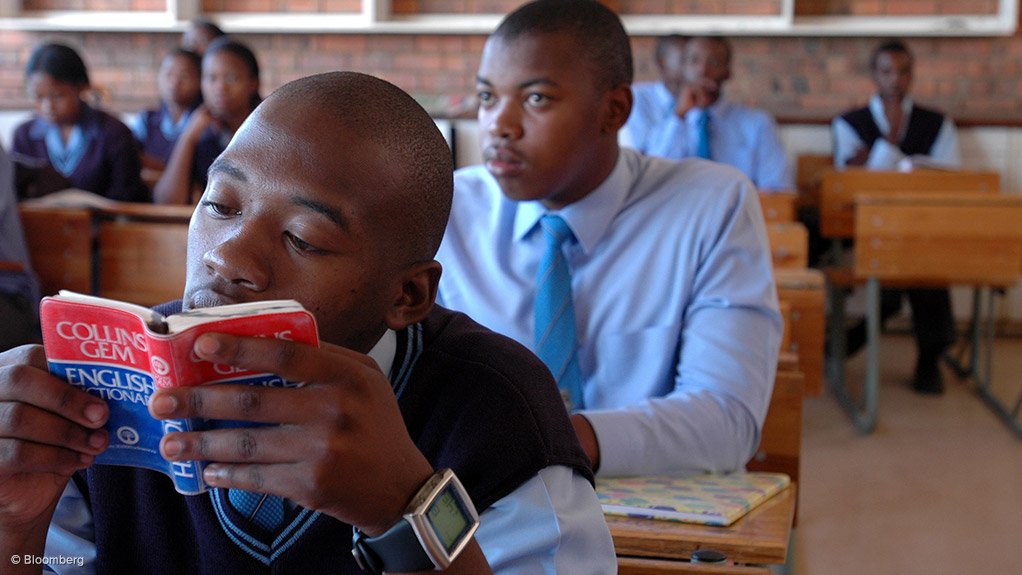/ MEDIA STATEMENT / The content on this page is not written by Polity.org.za, but is supplied by third parties. This content does not constitute news reporting by Polity.org.za.
Sixteen learners from two schools in KwaZulu-Natal (KZN) will represent South Africa at a worldwide learners' conference from 4 to 8 August 2014 in New Delhi, India, after successfully developing research projects on saving the environment.
The conference is the GLOBE Learning Expedition, held every few years to allow GLOBE students from around the world to showcase their research efforts and meet scientists and young people with similar interests.
GLOBE is the Global Learning and Observations to Benefit the Environment programme, a worldwide, hands-on, school-based science and education programme that encourages and supports learners, teachers and scientists to collaborate on inquiry-based investigations of the environment and the Earth system.
Led by the United States government, in partnership with NASA (the US National Aeronautics and Space Administration), the National Science Foundation and the National Oceanic and Atmospheric Administration, the GLOBE programme is a cooperative effort by governments, universities, colleges, schools, communities and non-governmental organisations to contribute to the scientific understanding of the Earth as a system.
Thandeka Biyela, Tatenda Chibisa, Mbalenhle Mzimela and Langelihle Vilakazi (from Empangeni High School), Nhlakanipho Biyela, Makhosazana Dlamini, Sinothile Mngomezulu, Thandokuhle Gama, Gift Mchunu, Diana Mngomezulu, Ntobeko Ndebele, Vumani Ndlovu, Mpho Sediso, Qhawelethu Thabede, Siphokazi Zondo and Dumisani Nhlenyama (from Vryheid Landbou Hoërskool) will present their research findings to their peers and GLOBE scientists at the event.
The learners started their investigation with the collection of simple daily measurements in their chosen field of study under one of the GLOBE themes. They learnt to analyse the data, make conclusions and share this information by uploading it onto the international database for use by learners and scientists around the world. They progressed to a stage where they successfully conceptualised their own research projects relevant to their locality within the context of their chosen GLOBE theme.
The research projects of the two schools were conceptualised within GLOBE's hydrology, soil, atmosphere and land cover themes. Empangeni High will present their research findings on the effects of industrial waste on the fresh water in the communities around Lake eNsaleni in the uMhlathuze Local Municipality.
Vryheid Landbou will share their findings on the impact of "worm tea" on plant growth, whether compost heat could be harvested for warming purposes, and using grey water for irrigation as an alternative to the borehole water on their school premises.
The heat compost research project was prompted by learners' curiosity when they recycled food scraps to minimise unpleasant odours. In the process, the learners observed that the compost heat was higher than the room temperature and they wondered if the heat could be harvested. Another byproduct of the food scraps recycling project was the liquid fertilizer the learners called "worm tea".
The investigation focused on finding out if "worm tea" really accelerated the growth rate of plants faster than normal soil or a chemical fertilizer. The findings were that worm tea contributed to plant growth and was also an insect repellent. The learners believe that their discovery could enhance organic farming, as well as encouraging people to recycle their food scraps and avoid overloading landfills.
The GLOBE programme in South Africa is one of the activities under the Department of Science and Technology's Youth into Science Strategy, which aims to promote science literacy among the youth, and nurture young people's talent for science, engineering and technology-related careers.
The Minister of Science and Technology, Naledi Pandor, considers the hands-on learning environment offered by GLOBE valuable in fostering a spirit of scientific inquiry in learners while they are still in the schooling system, and a useful segment of the human capital pipeline required for South Africa to become a knowledge economy.
EMAIL THIS ARTICLE SAVE THIS ARTICLE
To subscribe email subscriptions@creamermedia.co.za or click here
To advertise email advertising@creamermedia.co.za or click here











